Dedicated Skilled Nursing Care
When you need extra medical support, our skilled nursing team at PruittHealth is here to provide compassionate care.
Contact a Skilled NurseOur skilled nursing and rehabilitation centers provide:
- 24/7 skilled nursing care to treat complex medical needs
- Physical, occupational, and speech therapy
- Specialty rehabilitation, like post-stroke care and post orthopedic surgical care
- Chronic disease care management
- Memory support services
- Cardiac care therapies
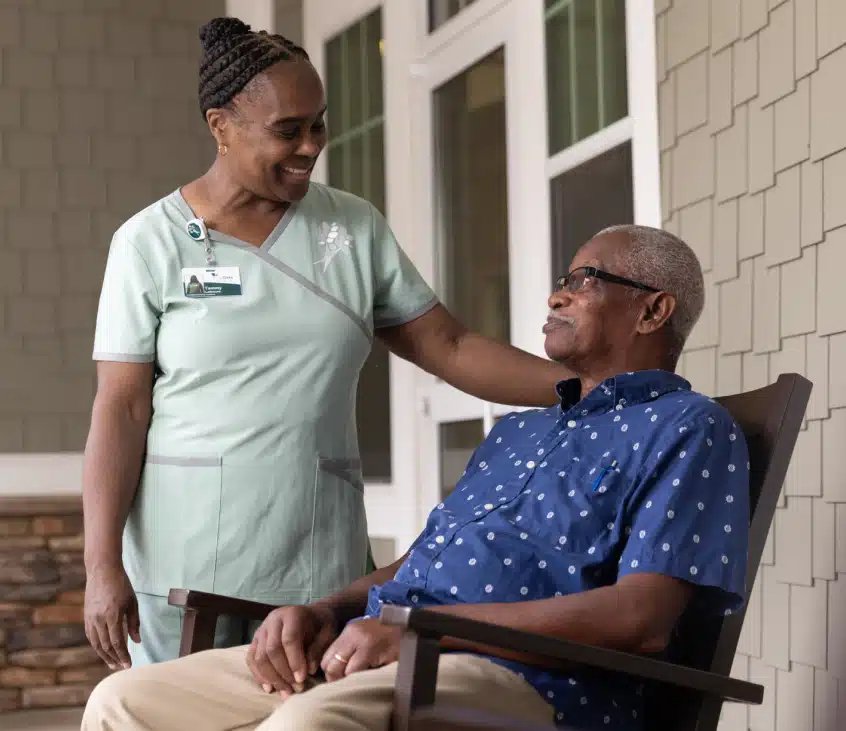
Is Skilled Nursing
Right For You?
Skilled nursing provides support when you or a loved one need medical care for complex or serious health issues beyond what home care or assisted living can offer.
Contact Us Today

Skilled Nursing and Rehabilitation Centers (commonly referred to as nursing homes) are health care facilities that are licensed and monitored by the State in which they operate. Our skilled nursing centers offer short- and long-term care options on an inpatient or outpatient basis.
After an accident or serious health event, temporary care is provided around the clock if your loved one needs medically necessary rehabilitation treatment. After this treatment, your loved one will typically be able to return home and receive care on an outpatient basis. This short-term care can include:
- Physician-led care
- A variety of nursing services, including assessment, pain management, medication management, and evaluation
- In-house rehabilitation services
- Nutritional and dietary assistance and meal plans
Sometimes, longer care is necessary when your loved one needs ongoing medical support and assistance.
The time spent in these environments varies greatly by patient, but care lengths for these skilled nursing and rehabilitation centers can be provided through the end of life.
This type of care includes:
- Medical care that provides more assistance than in-home nursing or independent assisted living
- Private or shared rooms (dependent on care center)
- Meal assistance and customization
- Accessibility and safety considerations provided in rooms and throughout the facility
If you or a loved one needs long-term care, you can expect compassionate, personalized attention from a team of skilled nurses. Our medical team at PruittHealth is dedicated to creating the most comfortable living environment while expertly treating medical conditions.
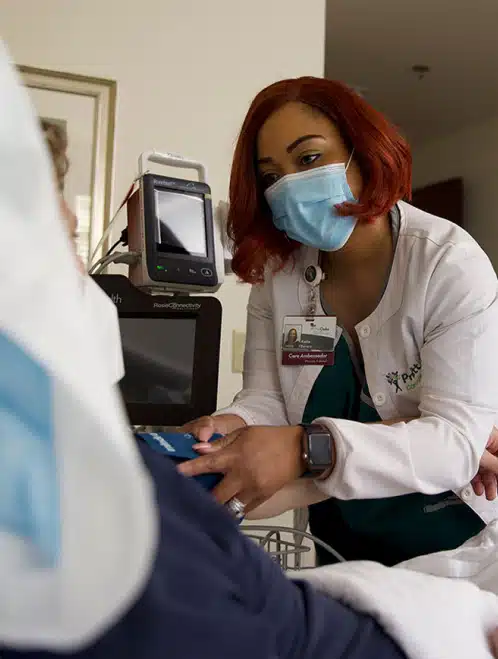

While everyone’s need for skilled nursing care is unique, there are common conditions and medical needs often treated at skilled nursing care and rehabilitation centers, including:
- Post-surgery recovery
- Stroke recovery
- Heart attack recovery
- Acute illness
- Diabetes management
- Advanced heart disease
- Chronic pain management
- Respiratory illnesses
- Cardiovascular issues
- Musculoskeletal injuries
- Memory issues
- Parkinson’s disease
- Alzheimer’s disease
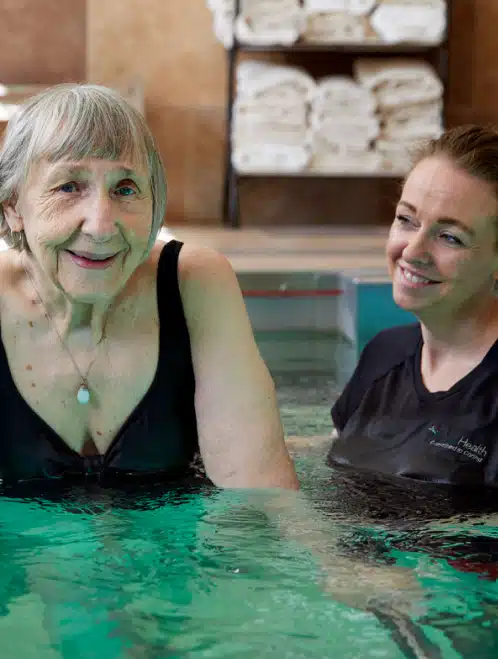

Skilled nursing is the assisted recovery care received when a loved one is recovering from an accident, surgery, or major health event like a stroke.
Care typically falls into three categories:
Recovery Care
- Post-surgical care
- Wound care
- Injury care
Rehabilitative Care
- Physical therapy
- Occupational therapy
- Speech therapy
- Stroke rehab
Chronic Issue Management
- Pain management
- Aquatic therapy
- Fitness therapy
- Memory support
Compassionate Care from PruittHealth
When choosing a skilled nursing facility for your loved ones, we know you want them to receive the best care possible.

Coordinated Health Care Network
We offer a spectrum of services that allows patients to receive continuous care from the same trusted family of providers.

Caring and Professional Staff
Our 13,000 compassionate employees are committed to providing the highest quality care to our patients.

A Legacy of Care
For over 50 years, we’ve been providing high-quality health care to communities across the Southeast.

The PruittHealth Difference
Our skilled nursing services are designed to support you through every challenge, every step of the way. Our experienced nursing team provides advanced care in state-of-the-art centers equipped with the latest technologies.
Candidates for skilled nursing include anyone who needs enhanced care during recovery or assistance in managing the effects of a major health event or chronic condition.
You can count on us. We’ll be here to help when you need it.
Skilled Nursing, Close to Home
We have skilled nursing facilities conveniently located throughout the Southeast region of the United States.
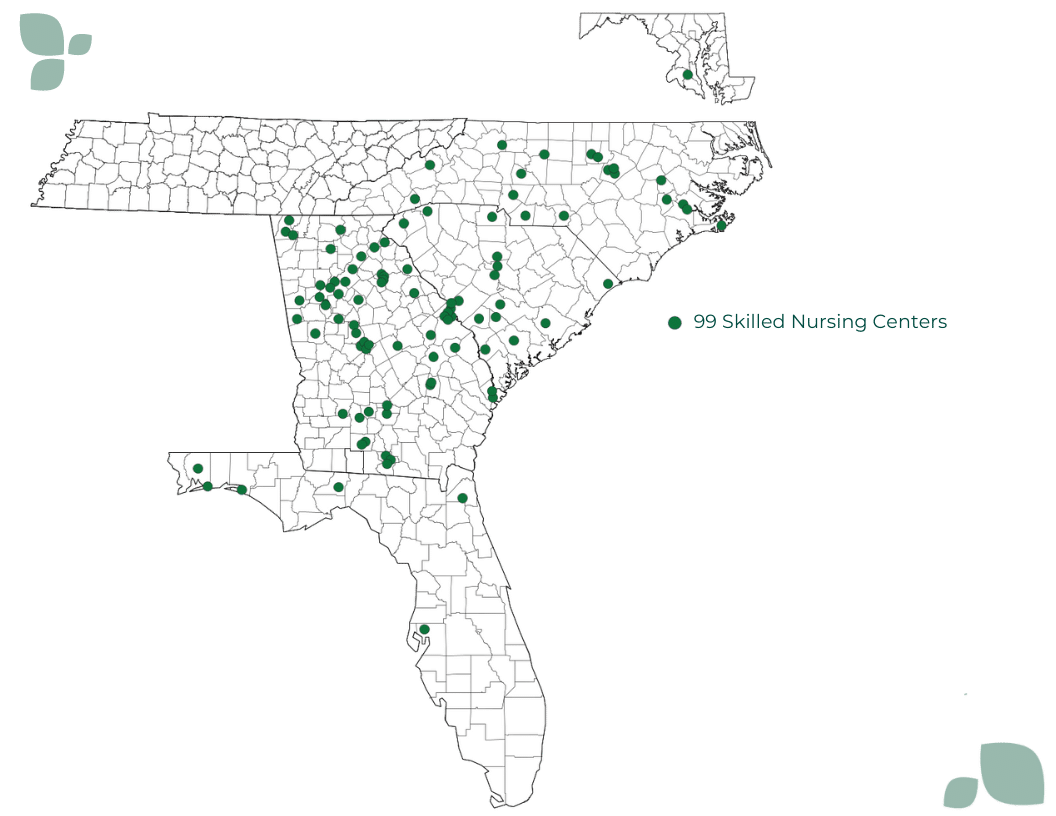
The Admissions Process
Assessment and Recommendation
Your doctor will assess your medical condition to determine the need for skilled nursing care. Based on the assessment, they will recommend whether skilled nursing is right for you.
Choose a Facility
Research skilled nursing facilities considering location, services, and insurance.
Admission
After receiving approval for admission, you'll receive assistance from our team to arrange a tour of the facility, move-in guidance, transfer of medical records, and, upon arrival, orientation to the facility.
Welcome to
Our Community
A Visual Journey Through Our Skilled Nursing and Rehabilitation Centers
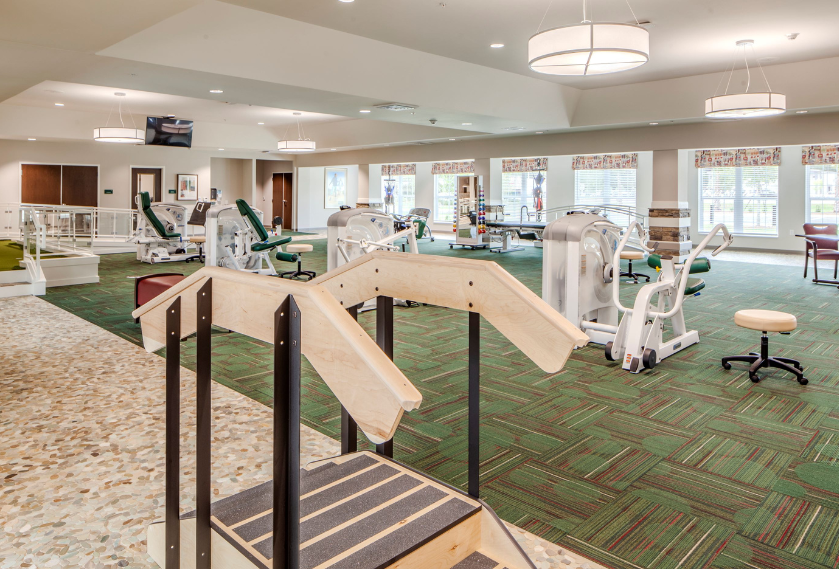
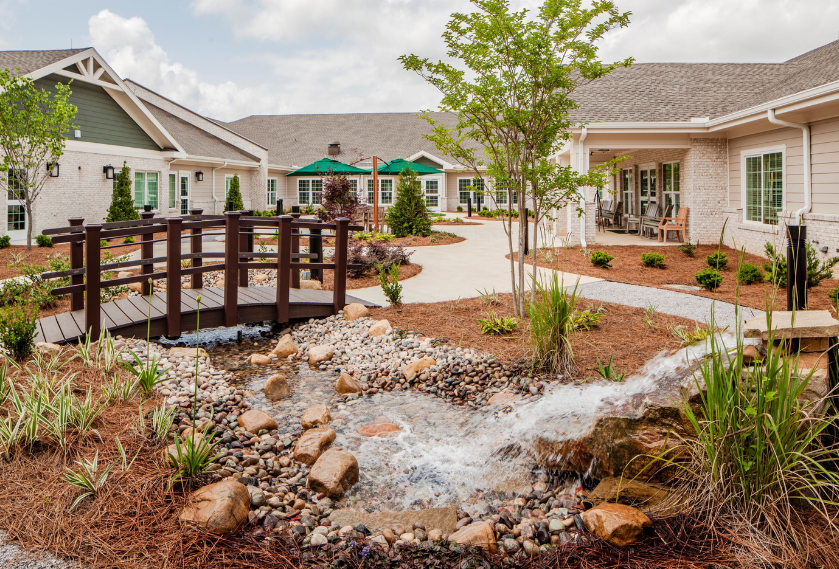
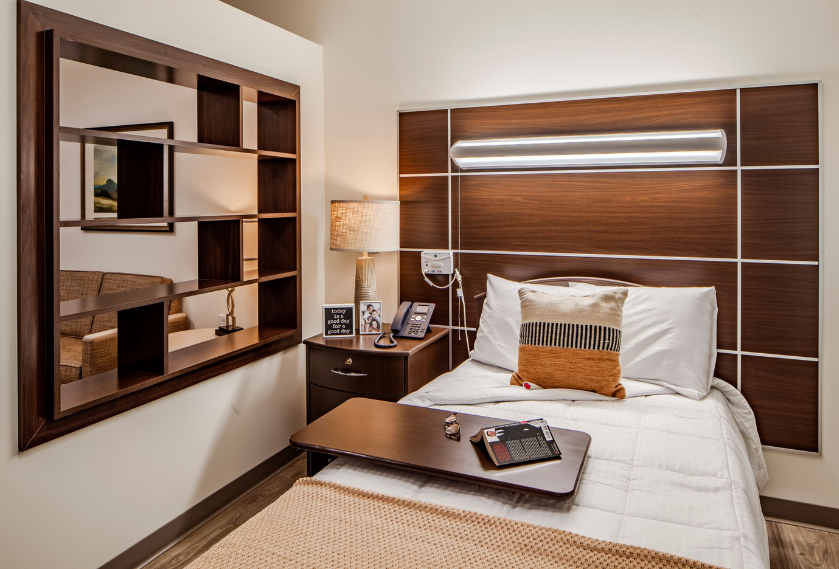
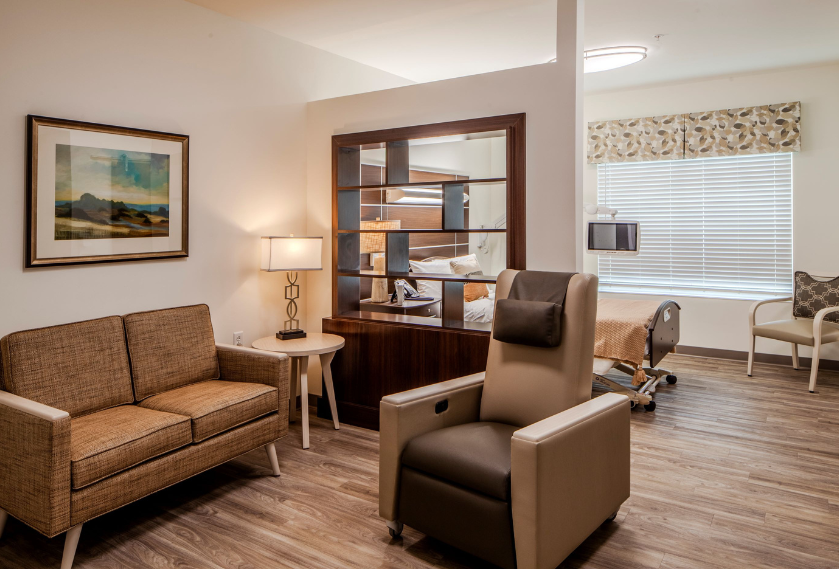
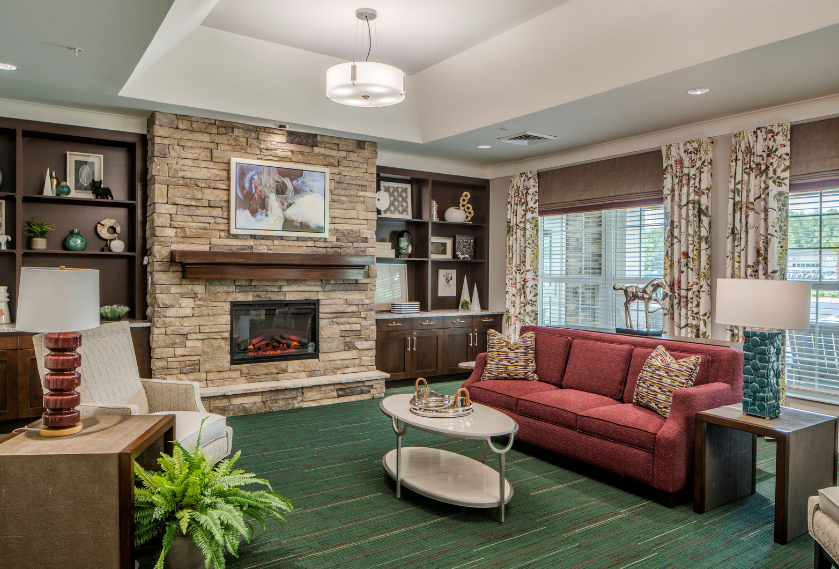
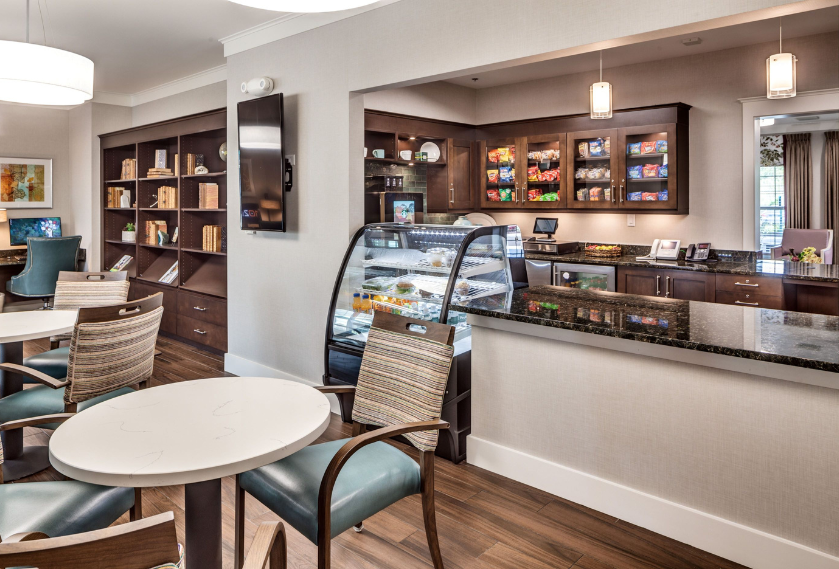
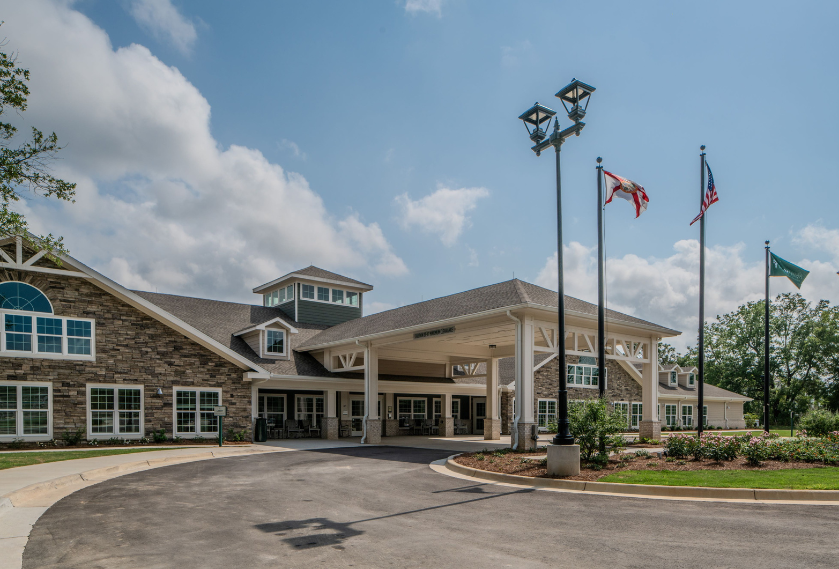
Stories of Care & Gratitude
“Each of you made me feel like I’m part of the PruittHealth family. Thank you for being so kind, loving and considerate. All of my family and friends could see that I was in the right place to help me heal.”
- Former Patient
“We are very happy and grateful for the progress our loved one has made during their time at PruittHealth – Panama City. The therapy team has performed a miracle!”
- Family Member
“My mother received exceptional care during her stay at PruittHealth – Fleming Island. The center was very clean, and the staff was friendly and welcoming. We took comfort in knowing she was comfortable and happy as she healed from her injury.”
- Family Member
“As soon as we walked through the door, the entire staff was so helpful and welcoming. From the nurses and techs who cared for my mother, to the social worker and physical therapy team, they all treated us like family.”
- Family Member
FAQs
You have options when it comes to paying for skilled nursing care. Below is a list of all the possible payment options for a skilled nursing facility.
Medicare
To receive Medicare services, you must use a Medicare-certified skilled nursing facility. Medicare Part A provides 100 days of coverage per benefit period. Your benefit period starts the day you begin receiving hospital or skilled nursing facility benefits.
Here’s how the coverage works:
- The first 20 days are fully covered by Medicare Part A.
- For the remaining 80 days, Medicare covers all charges except for the co-insurance amount as long as you meet the skilled level of care criteria.
Your benefit period ends if:
- You have not been in a skilled nursing facility (SNF) or hospital for at least 60 consecutive days.
- If you are still in a skilled nursing facility, you must go 60 days without receiving skilled care to renew your benefit period.
You are not limited to a certain number of benefit periods. However, to qualify for another 100-day Medicare benefit period, you must have another three-day hospital stay and continue to meet Medicare requirements.
Medicaid
Medicaid is a State and Federal program that will pay most nursing home costs for people with limited income. Since Medicaid is a State and Federal funded program, each state offers different eligibility criteria. You will only receive the benefits of Medicaid if the skilled nursing facility that you are a resident of is certified by the government.
Private Pay
Most nursing home residents pay for their nursing home stay out of their own personal accounts. Once you have depleted your funds and are becoming long-term residents of a nursing facility, the majority of people are able to receive Medicaid.
Medigap
This is private insurance that helps to fill in the gaps that Medicare parts: A and B do not cover such as deductibles, co-insurance, or skilled nursing facility services that extend beyond the Medicare benefit period. A Medigap plan will assist in paying skilled nursing care but only if the care is covered by Medicare.
Long-Term Care Insurance
All long-term care insurance policies differ when it comes to benefits and costs. You will need to contact the NAIC (National Association of Insurance Commissioners) for more detailed information regarding the different long-term care insurance policies.
When you go to a skilled nursing facility, a team of staff plans your care based on the doctor’s (the facility medical director) orders and the results of your daily assessments:
- Your doctor and the staff review your assessments and determine the necessary services and set health goals for you. A health goal could be something like being able to walk a certain distance or climb stairs.
Your daily assessments and skilled care begin the day you arrive at the facility.
After your initial assessment, the facility will create a care plan with you and your family. Your care plan includes:
- The services you need
- Who will deliver the services
- How often you need the services
- Any equipment needed to reach your goals
- Food options
- Other necessary details
Nursing
- Carries out medical orders from the physician as well as providing nursing care
Physical Therapy
- Focuses on strengthening large muscle groups (anything from the waist down) Walking / Sitting / Standing / Stairs etc.
Occupational Therapy
- Focus is on improving fine motor skills (anything from the waist up) Ability to hold eating utensils/brushing hair and teeth/dressing oneself, etc.
Speech Therapy
- If necessary, focus is on speech improvement or swallowing ability (typically needed after a patient has suffered from a stroke)
The qualifications needed to be covered by Medicare in a Skilled Nursing and Rehabilitation Center include:
- Beneficiary must have a three-day qualifying hospital stay.
- Admitted to the health care center within 30 days of a hospital discharge.
- Have unused Medicare Part A days.
- Have a diagnosis covered by Medicare.
How can I get Medicare Coverage in a Skilled Nursing and Rehabilitation Center?
To receive services, you must use a Medicare-certified skilled nursing facility. Medicare Part A provides 100 days of coverage per benefit period. Your benefit period begins the day you start receiving hospital or skilled nursing facility benefits:
- The first 20 days are fully covered by Medicare Part A.
- For the remaining 80 days, Medicare covers all charges except for the co-insurance amount.
It’s important to note that you are not limited to a specific number of benefit periods. However, to qualify for another 100-day Medicare benefit period, you must have another three-day hospital stay and continue to meet Medicare requirements.
Will I Remain on Medicare Part A for the Full 100 Days?
A patient will remain on Medicare, Part A, as long as it is medically necessary. If at any point during the patient’s stay their health improves and their diagnosis no longer supports Medicare coverage, they will either be discharged or change payor types.
How Do I Qualify for a New 100 Days of Coverage?
The beneficiary must go 60 consecutive days without receiving skilled care. After the sixty-day period, the beneficiary qualifies for another 100 days of care if they meet the pre-mentioned criteria.
What is Co-insurance?
Co-insurance, also known as percentage participation, helps cover the cost of services not fully paid by Medicare after your initial 20 days of coverage. There are typically three sources of co-insurance:
- Medicaid
- Private Insurance Company
- The Patient
Ultimately, the patient is responsible for paying the co-insurance.
What Services Does Medicare Part B Pay for?
Medicare Part B pays for the following services when the patient is no longer covered by Medicare Part A:
- Physical Therapy
- Speech Therapy
- Occupational Therapy
Additionally, Medicare Part B covers many medically necessary services that Part A does not. However, there is a 20% co-insurance amount that Medicare Part B does not cover.
Start Your Care Journey
Answer a brief question and then fill out the form or call today.
One of our PruittHealth experts will contact you shortly.
Are you or a loved one looking for skilled nursing care following a procedure, accident, or to support a chronic condition?
Start Your Care Journey
Simply fill out the form or call today, and and one of our PruittHealth experts will contact you soon.
Start Your Care Journey
For alternative care types, current patient information, or job inquiries please refer to PruittHealth.com for more information.